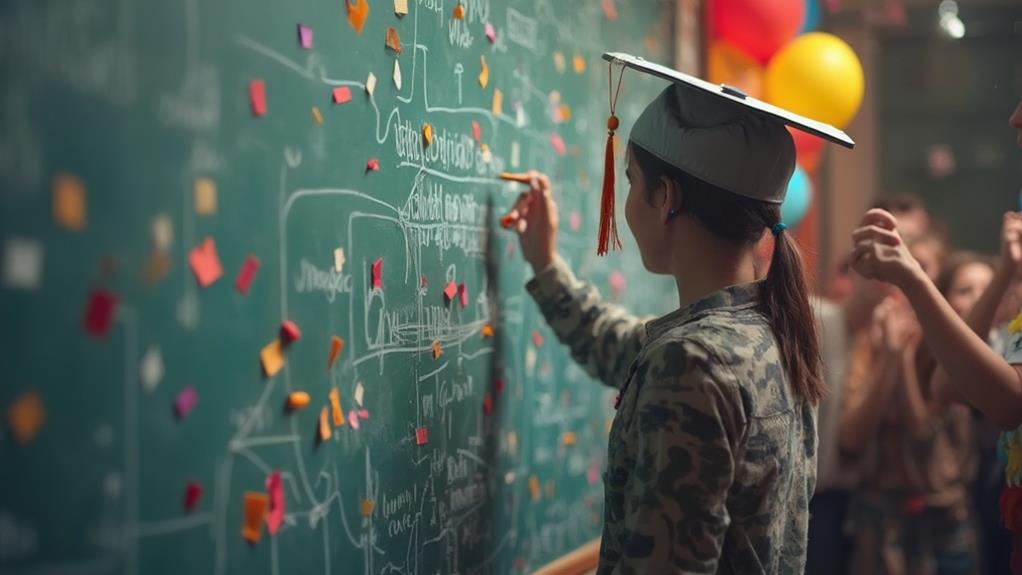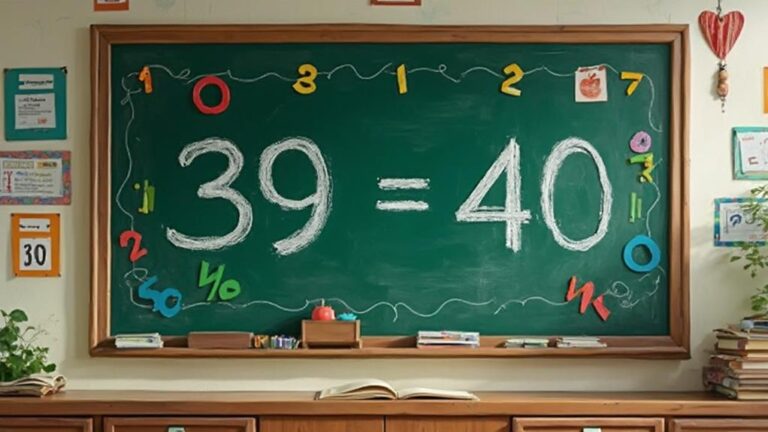Imagine a key opening the door to effective communication; that key is correct spelling. You might think spelling "Congratulations" would be straightforward, yet it's often misspelled. This word symbolizes acknowledgment and success, so getting it right is vital. There are common pitfalls to avoid, and you'll find tools that can make this easier. Have you ever wondered how a small mistake could impact the message you're trying to convey? Let's explore how to guarantee your celebratory words always hit the mark.
Correct Spelling
When it comes to spelling "congratulations" correctly, you need to remember that it includes a "t" and ends with "s." This word, which stems from the Latin "com-" (with) and "gratulari" (give thanks/show joy), is often misspelled as "congradulations" or "congraduation." These errors can undermine the professionalism of your written communication.
To guarantee accuracy, always spell "congratulations" with a "t" after the "a" and before the "u." It's one of those words that are commonly misspelled, but getting it right is vital, especially in formal or celebratory contexts. Double-checking your spelling helps maintain the respect and joy that the word is meant to convey.
Make certain to proofread your writing carefully. Catching spelling errors before hitting send or publish can save you from potential embarrassment.
Utilize spelling and grammar checking tools like Grammarly or LanguageTool to catch mistakes you might miss. These tools can be invaluable in guaranteeing your message remains clear and professional.
Usage in Context
When you use "congratulations" to acknowledge achievements, you're showing appreciation and fostering a positive environment.
It's essential to spell it correctly to maintain a professional tone, especially in celebratory messages where mistakes can detract from the sentiment.
Always double-check your spelling to guarantee your message is both encouraging and polished.
Acknowledging Achievements Rightly
Acknowledging achievements rightly involves more than just stating the obvious; it requires a thoughtful approach that enhances the recipient's sense of accomplishment. When you spell congratulations correctly, you're not just marking a milestone; you're validating the hard work and effort that went into it.
Remember how to spell congratulations—it's a small but significant detail that shows you care about the recognition you're giving.
Using "congratulations" in your messages, whether formal or informal, adds a layer of personal significance to the achievement. A simple "Congratulations on your promotion!" or "Congratulations for winning the award!" can make the recipient feel valued and appreciated.
These messages, shared in speeches or on social media, reinforce positive reinforcement and highlight the importance of the achievement.
Recognizing achievements with "congratulations" fosters a sense of community and support, creating a shared celebration that strengthens social bonds. It's not just about the words; it's about the connection and the acknowledgment of effort and success.
Importance in Celebratory Messages
In celebratory messages, the importance of "congratulations" can't be overstated. When you use "congratulations" to acknowledge achievements or milestones, you're not just offering a word; you're creating an emotional impact that resonates deeply with the recipient. Whether it's completing exams, receiving a promotion, or any other success, "congratulations" expresses joy and recognition that make the individual feel valued and appreciated.
The cultural significance of "congratulations" lies in its universal acceptance as a term of praise and goodwill. In many cultures, giving and receiving congratulations is a key part of celebrations, reinforcing positive sentiments and fostering a sense of community and support. This shared experience helps to build stronger bonds between people, making everyone feel they belong.
Adding a personalized touch to your congratulatory messages can amplify their effect. Including specific details about the achievement or a heartfelt note alongside "congratulations" makes your message more meaningful. It shows that you've taken the time to acknowledge their hard work and success personally.
Correcting Spelling Mistakes
Correcting spelling mistakes can elevate the professionalism and impact of your messages. When you spell "congratulations" correctly, you not only acknowledge achievements accurately but also enhance the significance of your message. To avoid common errors like "congradulations" or "congraluations," employing effective spelling strategies is vital.
First, familiarize yourself with proofreading techniques. Reading your message aloud can help catch errors that might be overlooked when reading silently. Additionally, using digital tools like Grammarly or LanguageTool can identify and correct spelling mistakes, ensuring words like "congratulations" are accurately presented.
Language learning plays a significant role in improving your spelling. Engaging with language resources, such as vocabulary lists or spelling apps, can reinforce the correct spelling of frequently used words. Remember, spelling "congratulations" with a "t" underscores the importance of attention to detail.
Lastly, belonging to a community that values clear communication can motivate you to refine your language skills. Sharing celebratory messages that are free from spelling errors fosters a sense of pride and connection.
Notable Examples
When you think of notable examples, consider how former cricketers congratulated Yuvraj Singh on his wedding, demonstrating the word's importance in sports celebrations.
Local news outlets also use "congratulations" to honor academic and athletic achievements, fostering community support.
These examples show how recognizing success with a simple "congratulations" can make a significant impact.
Sports Achievements Celebrated
Celebrating sports achievements brings a sense of unity and pride among fans and athletes alike. Recognizing sports milestones and celebrating victories are essential for fostering community spirit.
When you see former cricketers extending congratulations to Yuvraj Singh on his wedding, it's clear that personal milestones in sports are celebrated just as much as professional ones. Such gestures highlight the importance of athlete recognition beyond their performance on the field.
Local news outlets often publish congratulatory notes for athletes' successes, ensuring that their achievements don't go unnoticed. These messages create a ripple effect, encouraging more support for upcoming talents.
For instance, Olympic gold medalists frequently receive an outpouring of congratulations, reinforcing the significance of their accomplishments and motivating aspiring athletes.
Here are three notable ways sports achievements are celebrated:
- Public Messages: Athletes are recognized through social media posts, news articles, and public announcements.
- Ceremonies and Awards: Special events and awards ceremonies are held to honor outstanding performances.
- Community Support: Fans and local communities rally behind their favorite athletes, often organizing parades and celebrations.
Academic Success Recognized
Recognizing academic success plays an essential role in fostering a culture of learning and achievement. When you celebrate academic milestones, such as being named valedictorian or completing all your exams, you're not just acknowledging hard work but also inspiring others to aim for excellence.
Recognition ceremonies are a fantastic way to highlight student accomplishments and create a sense of community pride. Local news outlets often publish articles that feature congratulatory messages for students and residents, reinforcing community support. These pieces are more than just announcements; they serve as a proof of the dedication and perseverance of individuals.
A message like "Congratulations on completing all your exams" can uplift spirits and encourage continued effort. Social media has also become a platform for celebrating academic success. Notable examples include posts congratulating graduates, which foster a sense of camaraderie among peers and family members.
When you see someone achieving their goals, it's natural to feel a sense of belonging and pride in their success. In short, taking the time to recognize and congratulate academic achievements not only honors the individual but strengthens the entire community, promoting a culture of accomplishment and support.
Common Misspellings
Many people often find themselves tripping over the correct spelling of "congratulations." The most frequent mistake is "congradulations," which accounts for 24.9% of errors. This misspelling pattern often arises from phonetic errors and common misconceptions about the word's proper form.
When you're writing "congratulations," it's easy to fall into these traps:
- Phonetic errors: Words like "congraluations" (7.2%) and "congragulations" (2.1%) stem from how the word sounds when spoken. You might think there's an extra "r" or "u" in there.
- Common misconceptions: Variations like "congradulation" (3.4%) and "congratualtions" (3.4%) illustrate how adding or swapping letters can lead to mistakes.
- Typographical slip-ups: Mistypes such as "cogratulations" (2.1%) and "congatulations" (2.1%) often happen when you're typing quickly and miss a key or two.
A significant portion of incorrect spellings falls into the "Other" category, making up 48.52% of various misspellings not listed individually.
Tools for Improvement
Grammarly and LanguageTool go beyond basic spell checkers. They provide synonyms for better word choice and help enhance communication skills by suggesting improved sentence structures.
These grammar checking tools are compatible with various platforms, including Chrome, Firefox, and Microsoft Word, guaranteeing you have access to them regardless of where you're writing.
By utilizing these tools, you can greatly enhance your overall writing quality. They guarantee correct spelling, which is vital for maintaining professionalism in written communication.
Investing in such writing resources leads to more polished work and reduces common spelling mistakes, thereby making your writing clearer and more effective.
Embrace these tools as part of your writing routine. They offer not just correction, but also the opportunity to learn and grow, fostering a sense of belonging within a community of proficient writers.
Related Words
When you explore the world of spelling and word usage, understanding related words can greatly enhance your grasp of "congratulations." The verb form, "congratulate," means to express good wishes to someone after an achievement. Recognizing related words and their correct usage enriches your communication, whether you're writing a formal message or a casual note.
To start, knowing the adjective "congratulatory" is key. It describes something that conveys congratulations or praise. For example, a congratulatory message can make someone's day special.
Another important term is "congrats," an informal version of "congratulations," perfect for casual conversations and texts. However, steer clear of "congrads" as it's not a correct alternative spelling.
Here are three tips to help you navigate congratulations expressions:
- Use "congratulatory" for formal settings: It's ideal in professional contexts or formal congratulatory phrases.
- Opt for "congrats" in informal congratulations: Keeping it short and sweet works well in friendly exchanges.
- Avoid incorrect spellings like "congrads": Stick to the correct forms to maintain clarity and professionalism.
Understanding these related words can help reinforce the right spelling and usage of "congratulations" in various contexts, fostering a sense of belonging through effective communication.
Alternatives to Congratulations
While understanding related words helps you master "congratulations," exploring alternatives can enrich your vocabulary and make your messages stand out. Using creative expressions like "You did it!" and "Way to go!" conveys recognition and praise for achievements in an invigorating way. These phrases are perfect for celebrating milestones while adding a personal touch.
For a more casual tone, consider saying "Good job!" or "Nice going!" These expressions effectively celebrate accomplishments without sounding too formal. They're great for everyday achievements and convey a sense of camaraderie.
If you want to emphasize acknowledgment and appreciation, try "You deserve a pat on the back." This phrase not only celebrates success but also highlights the effort and dedication behind it. It's a heartfelt way to show you genuinely value someone's hard work.
For quick and friendly messages, "Congrats" works wonders. It retains the positive connotation of "congratulations" while being brief and approachable.
Additionally, humorous alternatives can bring a smile to the recipient's face. Phrases like "You're a rockstar!" or "You crushed it!" add a fun twist to your message. By incorporating these variations, you can make your congratulations feel more personalized and memorable.
Frequently Asked Questions
Which Is Correct, Congratulations or Congradulations?
You're wondering which is correct: congratulations or congradulations? The correct spelling is "congratulations." Common misspellings like "congradulations" happen due to phonetic pronunciation errors. Always use "congratulations" in celebrations for professional and accurate communication.
Is Congratulations Spelled With S or Without?
Congratulations is spelled with an "s" at the end. For spelling tips, remember it's not "congradulations." Common mistakes include adding a "d." Use a pronunciation guide to help, and you'll avoid errors.
Why Do Some People Spell Congratulations With an Ad?
You might spell "congratulations" with an "ad" due to common misspellings and phonetic confusion. Language evolution also plays a role, as similar-sounding prefixes create misunderstandings. Always double-check to verify accuracy and feel confident in your writing.
What Is the Proper Way to Say Congratulations?
Celebrate success by saying "Congratulations!" It's a common way to express joy and acknowledgment. Avoid common misspellings like "congradulations." Understanding its cultural significance fosters connection and shows you truly care about others' achievements.







